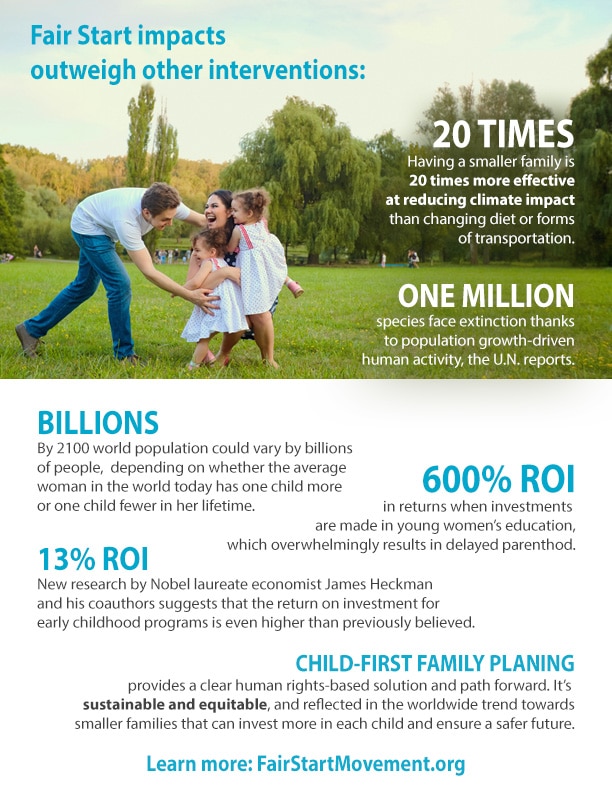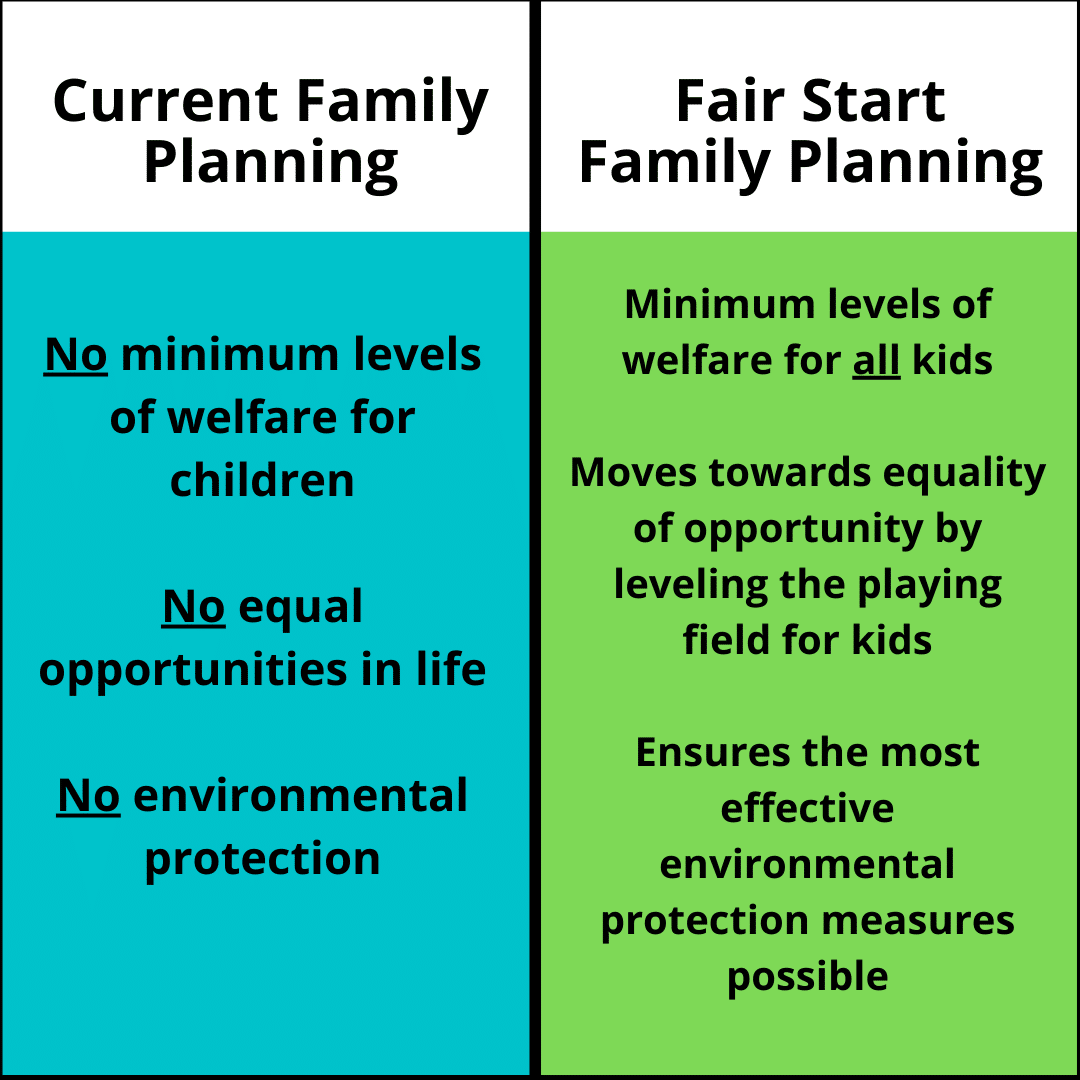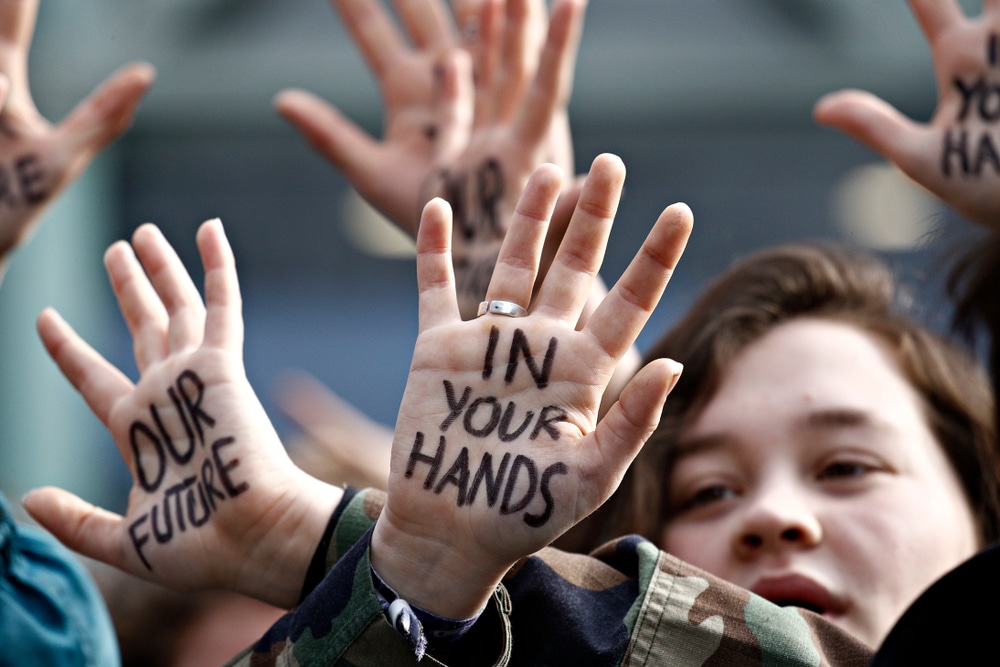Fair Start Movement’s mission is to replace parent-centric subjective family planning systems with a child-centric model that ensures children are born and raised in conditions consistent – minimally – with the Children’s Rights Convention, a move enabled via effective family planning incentives/entitlements. We partner with organizations around the world, like the wonderful Rejoice Africa Foundation (formerly Kibengo Youth Care Activists), on Fair Start and other initiatives.
Thank you for being a leader in the efforts to assure family planning needs are being met worldwide. Given recent discussions of your foundations possibly funding a world children’s savings bank, if these reports are true, we urge one simple guideline for such a plan. That guideline would correct the baseline error, or the act of trying to assess costs and benefits without orienting from a position of consensual governance, described further below. We urge that the gift recognize that much of the wealth was built on a system of unsustainable growth and illegitimately externalized costs, per one Nobel Laurate, that included billions having and raising children in conditions that did not satisfy the standards children and their parents deserve, the standards that were eventually codified in the Children’s Rights Convention.

As such, the wealth was created by externalizing costs in derogation of the free and equal societies envisioned by the Convention, a mistake which should entitle future generations to compensation (in the form of the planning incentives/entitlements discussed below) that would move the world toward being comprised of such participatory and member-reflective societies. There are concrete guidelines for such a baseline, many of which are in the Convention, but also the restorative climate targets now being lauded by U.S. officials, democratic representative ratios, biodiversity standards, metrics for equality of opportunity, and metrics for levels of trust within particular political jurisdictions. The guidelines show an alignment of our most basic values, and around -280ppm restorative environmental policies, all of which begin with us truly constituting ourselves as free and equal people.
It was wrong to assess costs and benefits in the manner that produced current entitlements because it was done in derogation of our being the inclusive, member-empowered, and participatory groups required to make such assessments. Polities have no authority to assign entitlements if they are not constituting themselves fairly, in this way. That obligation is fully implied by the Universal Declaration of Human Rights, including Article 16 and its reference to families, but was ignored during the critical phase of the last half of the 20th Century. The list of costs stemming from that error is staggering: Growing levels of birth-based inequity, rising numbers of unhoused persons, disruption of even existing systems of education, exacerbation of the conditions that drive pandemics, multiplying the climate crisis on multiple levels, degrading systems of participatory democracy, and the heightened risk of terrorism. There is also the knock on impacts of the relationship between population policies, the creation of communities and humans’ inclination to imitate rather than innovate beneficial behavior, and the inability to effectuate human rights amid the chaos of billions of people (including the commercial cacophony and other funded messaging ((including rent-seeking messaging from non-profits) that drowns out valuable truth), most of whom are not sufficiently prepared and empathetic to grasp and apply the system’s basic concepts.
Is there evidence that we see children as economic inputs, rather than citizens, and not deserving of minimum levels of welfare, equity, restored ecologies, and an influential voice in their democracies? The ubiquitous bemoaning of falling fertility rates as a “baby bust” economic crisis, with no plans to assure children the things described as various policies are offered to reverse the crisis, is ample proof.
Our work establishing this fundamental baseline for assessing costs and benefits, and the human rights nature of child-centric planning as oriented to protect the vulnerable parties at stake, has been subject to almost half-a-dozen peer reviews. And the claim that a fair start in life logically precedes governmental authority to issue the property rights on which the wealth was built – because we are before we do – seems irrefutable. How could we be self-determining or free in an anthropocentric world dominated by a singularly human-centric viewpoint, rather than a natural or nonhuman one – built into family planning – that allow humans to consent to the power of others? Without that primacy we never constitute fair, or free and equal, societies. We never create the consensual, inclusive, and participatory town halls necessary to actually regulate the wealth-building economies. Free people will condition their political obligations on their capacity, as equals, to change those obligations. Fair Start enables this.

This is our challenge: If your plans are to give as reported, please designate at least part of the funds – by COP 27 – as human rights entitlements designed to move us towards the fundamental baseline discussed above, one which actually complies with the requirements of the international human rights regime. Surely, as things like the threat of climate-driven mass famine in the Horn of Africa unfold, it’s clear that our current, anthropocentric, isolating, and inequitable system of family planning was a terrible mistake. Fair incentives/entitlements, designed to build the town halls that liberate us, could have prevented that. If children deserve the funds, they deserve the efficacy putting the funds into bending the arc of planning and growth would produce through things like allowing delay and preparation, creating changes in family size, ensuring opportunities for co-investment, encouraging relocation etc. If it takes a village to raise a child, it takes a village to plan for one and there is a test for whether we are doing that consistent with human rights and democracy.
The entitlements are not paying for people. They are paying to convert – at the most fundamental or creative level – commercial relations into empowering democratic/normative relations, or the sort of town hall relations needed to regulate the second-order forms of shopping malls. If we value democracy it will be unreasonable for intending parents to refuse the empowering funds, and unreasonable for concentrations of wealth and power to refuse to give them. Whether we are part of groups of free and equal people first depends on whether we correct the baseline error described above (reiterated in the Cairo Consensus which wrongly treats the act of having kids as more self-determining for the parents than other-determining for the children born) and are part of efforts to ensure people are relatively self-determining through collective child-centric planning, or we are not part of such efforts. There is no obligation that can proceed this – becoming a just people.
Legal systems, markets, customs, etc., can only do so much to guide human behavior. The gaps depend on – and in government by the people should depend upon – the circumstances in which we are born and develop and which lead to our emancipation. The value of democracy – the “We the People” – includes the high quality of life sharing the world with people prepared for such systems – with a common core of objective values, prosocial dispositions, high levels of education and equity, etc. – would entail. The antecedent “we,” that proceeds all action, is actually a reference to power relations between people, and between people and their environment, that for self-governing people should arise from birth and development. Collective child-centric planning can get us there, but because group legitimacy derives from individual choice, each person must choose whether they support or reject fundamental fairness and choose to be part of just or unjust systems.
Without this change in entitlements, we risk a future – as the climate crisis deepens – where the system by which we made our wealth does more harm to future generations than our philanthropy can do to help them. We risk choosing not to constitute ourselves as free and equal people. and remaining part of an unjust and exploitative system. Instead, we can follow the lead of others choosing to reorient entitlements, and through that discourse and action, choose to be part of consensual systems of governance.
Thanks for considering, and for your work to date.
The Team at Fair Start Movement

